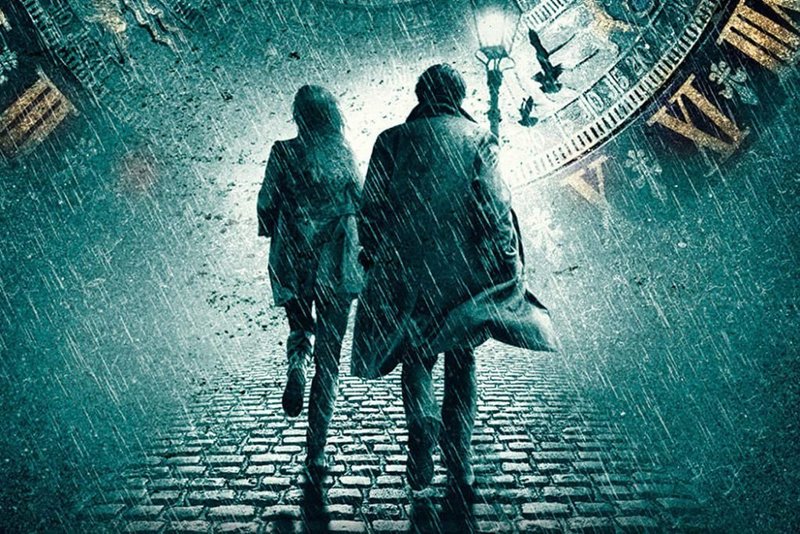Whodunnit? She Did, of Course!
WriterShelf™ is a unique multiple pen name blogging and forum platform. Protect relationships and your privacy. Take your writing in new directions. ** Join WriterShelf**
WriterShelf™ is an open writing platform. The views, information and opinions in this article are those of the author.
Article info
Categories:
⟩
⟩
⟩
⟩
Date:
Published: 2019/03/07 - Updated: 2020/05/28
Total: 980 words
Like
or Dislike
About the Author
Got a suggestion for a good read? Leave it in the comments!
More from this author
More to explore











Shedunnit is a wonderful podcast all about the golden age of detective fiction. It's a storytelling podcast that unravels the mysteries behind classic detective stories.
If you’ve ever stayed up late reading under the covers to find out whodunnit, then this podcast is for you. Give it a listen!
For a couple of decades between the first and second world wars, something mysterious happened. Many things, actually — there were murders in country houses, on golf courses, in Oxford colleges, on trains, in vicarages, in far flung parts of the globe and quaint English villages. Pistols, daggers, blunt instruments and exotic poisons abounded.
No fictional character was safe.
What's more, Shedunnit is the work of one whole person. Just Caroline Crampton, all by her lonesome. It's quite the achievement. Crampton even includes a list of the books referenced with every episode. Nice!
Find the podcast in all major podcast apps and at shedunnitshow.com, on Twitter, Facebook and Instagram as ShedunnitShow.
Episodes (so far)
0. Whodunnit? - Oct. 24, 2018
Intro episode.
1. Surplus Women - Oct. 31, 2018
After the First World War, there was a great flowering of female independence as more women chose to live single lives. This change, and the backlash to it, is all there to be found in the murder mysteries of the period, if you just dig a little below the surface. From self-contained, professional women like Mary Whittaker in Dorothy L Sayers’ Unnatural Death to dear, fluffy Miss Marple, there are a multitude of single women’s lives to discover.
2. Crippen - Nov. 15, 2018
The detective writers of the 1920s and 1930s weren’t working a vacuum. They took a keen interest in the crimes of their time, often weaving elements from actual murder cases into their plots or referencing them directly. And there was one case, a murder both infamous and domestic, that interested the likes of Agatha Christie, Dorothy L. Sayers and Anthony Berkeley more than any other.
This real life murder mystery has everything: a body hidden in the cellar, adultery, a transatlantic steamship pursuit, cross dressing, and a pleasingly ambiguous ending. It was referenced in novels more than any other by the detective writers of the golden age, and did a great deal to shape the genre as we know it today.
This is the story of Dr Crippen.
3. Queer Clues - Nov. 28, 2018
The detective stories of the 1920s and 30s aren’t exactly well known for being edgy, or at the vanguard of the struggle for gay rights. But there are queer clues everywhere in these books, if you only know where to look for them.
4. The Lady Vanishes - Dec. 12, 2018
On 3 December 1926, Agatha Christie left her home in the southern English county of Berkshire just after 9.30 in the evening. She drove away, taking a small suitcase and a fur coat with her. The following morning, the car was found 15 miles away on the edge of a lake called Silent Pool. The headlights were still on and her luggage was inside, but the driver was nowhere to be seen. The lady had vanished.
5. Crime at Christmas - Dec. 19, 2018
Reading crime fiction from the early twentieth century is a really popular activity at Christmas. It’s nice to curl up with a good whodunnit by the fire, but if we stop and think about it, reading about complicated ways for people to die is not exactly the most festive thing to do. So why is it that we love crime at Christmas?
6. Adaptations (with Sarah Phelps) - Dec. 26, 2018
For many people, their main contact with detective fiction is via film and television adaptations. For a huge global audience, Agatha Christie’s work is as often watched as it is read. Any new production is greeted with intense scrutiny, so what is it really like to adapt these stories? Screenwriter Sarah Phelps, the woman behind the recent BBC versions of And Then There Were None, Witness for the Prosecution, Ordeal by Innocence and now The ABC Murders, explains.
7. Edith Thompson - Jan. 9, 2019
On the morning of 9 January 1923, a brutal and horrifying execution took place at Holloway Prison in London. The condemned young woman screamed and cried, but no last minute reprieve arrived. Long after she was dead, her story would inspire authors like James Joyce, E.M. Delafield, Dorothy L. Sayers and Sarah Waters, and you can find traces of it in many detective novels published in the decades since.
This is the story of Edith Thompson.
8. Dining with Death - Jan. 23, 2019
Food matters in books. It helps to set the scene, build up characters and evoke a period, and it also symbolises comfort, security and domesticity. Yet in detective fiction, food can also be a method for murder. Everything is lovely at the family dinner, until somebody clutches their throat, turns blue in the face, and falls face forward into the soup.
9. The Rules - Feb. 6, 2019
A good detective story has a recognisable rhythm and plot points. But how did these tropes come about? And what happens when you break the rules?
10. Nurse Daniels - Feb. 20, 2019
On 6 October 1926, a woman went into a cloakroom in Boulogne, France and never came out. She was never seen alive again. Her disappearance captivated the world, and even detective novelist Dorothy L. Sayers tried to solve the case.
This is the story of Nurse Daniels.
11. The Other Detectives - Mar. 6, 2019
Some sleuths need no introduction. But other characters, also created by famous authors like Agatha Christie and Dorothy L. Sayers, lurk in obscurity. In this episode, we’re on the hunt for the other detectives.
Like this podcast? What are your favorite literary podcasts? Share your recommendations in the comments.